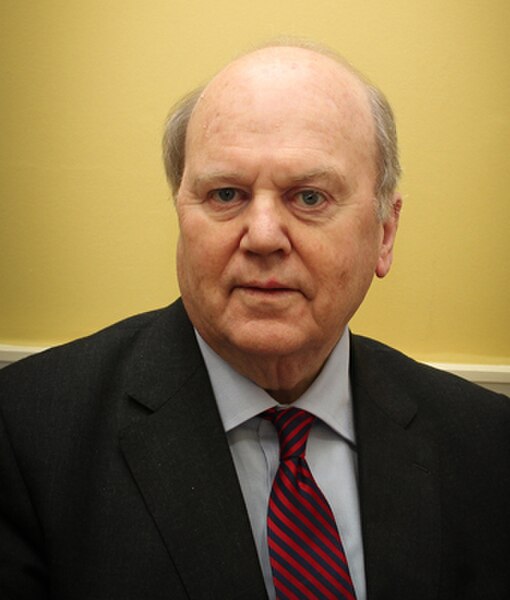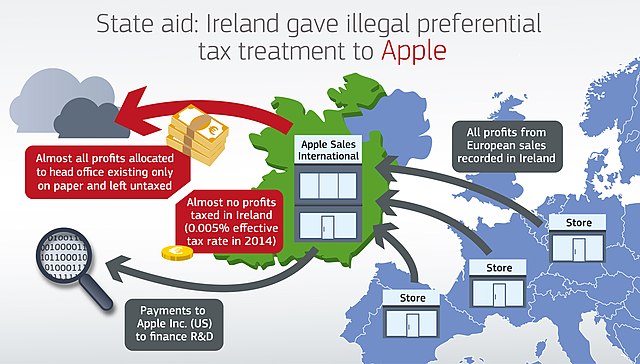The Double Irish arrangement was a base erosion and profit shifting (BEPS) corporate tax avoidance tool used mostly by United States multinationals since the late 1980s to avoid corporate taxation on non-U.S. profits. It was the largest tax avoidance tool in history and by 2010 was shielding US$100 billion annually in US multinational foreign profits from taxation, and was the main tool by which US multinationals built up untaxed offshore reserves of US$1 trillion from 2004 to 2018. Traditionally, it was also used with the Dutch Sandwich BEPS tool; however, 2010 changes to tax laws in Ireland dispensed with this requirement.
International Financial Services Centre (IFSC), centre of US multinational tax planning in Ireland
Former Finance Minister Michael Noonan closed the Double Irish BEPS tool to new entrants in October 2014 (existing schemes to close by 2020), but expanded the CAIA BEPS tool as a replacement in 2011–2016, and infamously told an Irish MEP who alerted him to the Single Malt BEPS tool, to "put on the green jersey".
The EU Commission's diagram of Apple's "Double Irish" BEPS tool
Margrethe Vestager, announcing Apple's €13 billion fine for Irish taxes avoided from 2004 to 2014 via an illegal "Double Irish" BEPS scheme
Base erosion and profit shifting
Base erosion and profit shifting (BEPS) refers to corporate tax planning strategies used by multinationals to "shift" profits from higher-tax jurisdictions to lower-tax jurisdictions or no-tax locations where there is little or no economic activity, thus "eroding" the "tax-base" of the higher-tax jurisdictions using deductible payments such as interest or royalties. For the government, the tax base is a company's income or profit. Tax is levied as a percentage on this income/profit. When that income / profit is transferred to a tax haven, the tax base is eroded and the company does not pay taxes to the country that is generating the income. As a result, tax revenues are reduced and the country is disadvantaged. The Organisation for Economic Co-operation and Development (OECD) define BEPS strategies as "exploiting gaps and mismatches in tax rules". While some of the tactics are illegal, the majority are not. Because businesses that operate across borders can utilize BEPS to obtain a competitive edge over domestic businesses, it affects the righteousness and integrity of tax systems. Furthermore, it lessens deliberate compliance, when taxpayers notice multinationals legally avoiding corporate income taxes. Because developing nations rely more heavily on corporate income tax, they are disproportionately affected by BEPS.

The United States Department of the Treasury decided against signing the 2016 OECD anti–BEPS MLI initiative from the § Failure of OECD (2012–2016), stating that the U.S.: "has a low degree of exposure to base erosion and profit shifting". International tax academics showed in 2018 that U.S. multinationals are the largest users of BEPS tools in the world; while U.S tax academics demonstrated, even as early as 1994 that the U.S. Treasury is a net beneficiary from the use of tax havens and BEPS by U.S. multinationals.
Profitability of U.S. subsidiaries (2015 BEA data).
Former Irish Taoiseach Enda Kenny (l), and PwC Partner Feargal O'Rourke (r) architect of two of the largest BEPS tools in the world, the Double Irish (including Microsoft, Google, Facebook, IBM, Johnson & Johnson and Pfizer, amongst many others), and the Green Jersey (as used by Apple in their Q1 2015 "leprechaun economics" restructuring in Ireland).







